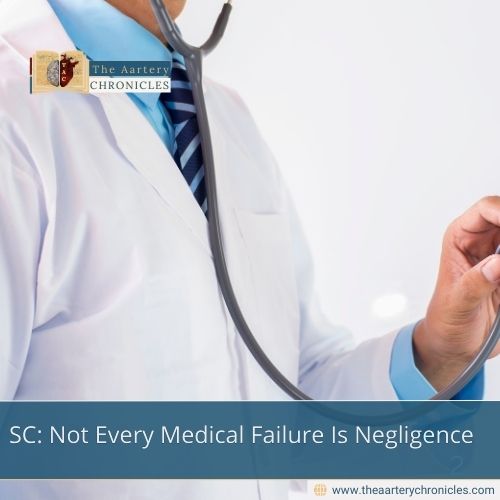

SC: Not Every Medical Failure Is Negligence
The Supreme Court has once again made it clear that not every unsuccessful treatment or surgery should be treated as a case of medical negligence. The ruling offers important relief to doctors, emphasising that a patient’s death or lack of recovery, by itself, is not enough to hold a physician legally responsible.
Court’s Stand on Failed Treatments
A bench of Justices Sanjay Kumar and Satish Chandra Sharma stated that a doctor cannot be punished simply because a patient did not respond well to treatment or because a surgery did not succeed. The judges explained that the doctrine of res ipsa loquitur, which means “the thing speaks for itself”, cannot be applied in such cases without strong evidence of negligence.
Reference to Past Rulings
The court recalled its earlier landmark judgment in Martin F. D’Souza vs. Mohd. Ishfaq. In that case, the Supreme Court had underlined that no sensible doctor would deliberately act in a way that harms a patient, as their professional reputation is always at risk. Sometimes, despite the best medical efforts, treatment may fail. However, such an outcome does not automatically amount to medical negligence unless there is convincing proof of carelessness or misconduct.
Recognising Both Sides of Healthcare
The bench also acknowledged that while the medical profession has, in some areas, become commercialised and certain practitioners may prioritise money over ethics, it would be unfair to generalise these actions to the entire medical community. The judges stressed that most doctors uphold their Hippocratic Oath with sincerity and integrity.
Case Details and Final Decision
In this particular case, the National Consumer Disputes Redressal Commission (NCDRC) had earlier held both the doctor and the hospital responsible for negligence after a woman died following childbirth. However, the Supreme Court overturned that decision.
The court pointed out that the main complaint highlighted the nursing home’s lack of proper facilities to handle delivery-related emergencies. Importantly, there were no specific allegations that the obstetrician or gynaecologist failed in providing proper antenatal care or treatment. Therefore, the charges of medical negligence could not be sustained.
Conclusion
This judgment reinforces the principle that a bad outcome in medicine does not always mean a doctor is at fault. It draws a clear line between genuine medical negligence and the unavoidable risks that sometimes come with healthcare. By doing so, the Supreme Court aims to protect honest doctors from unfair blame while still ensuring accountability where true negligence exists.
Source: Inputs from various media Sources
Conclusion
I’m a pharmacist with a strong background in health sciences. I hold a BSc from Delhi University and a pharmacy degree from PDM University. I write articles and daily health news while interviewing doctors to bring you the latest insights. In my free time, you’ll find me at the gym or lost in a sci-fi novel.
- Priya Bairagi
- Health News and Updates,People Forum
- 16 September 2025
- 17:00








